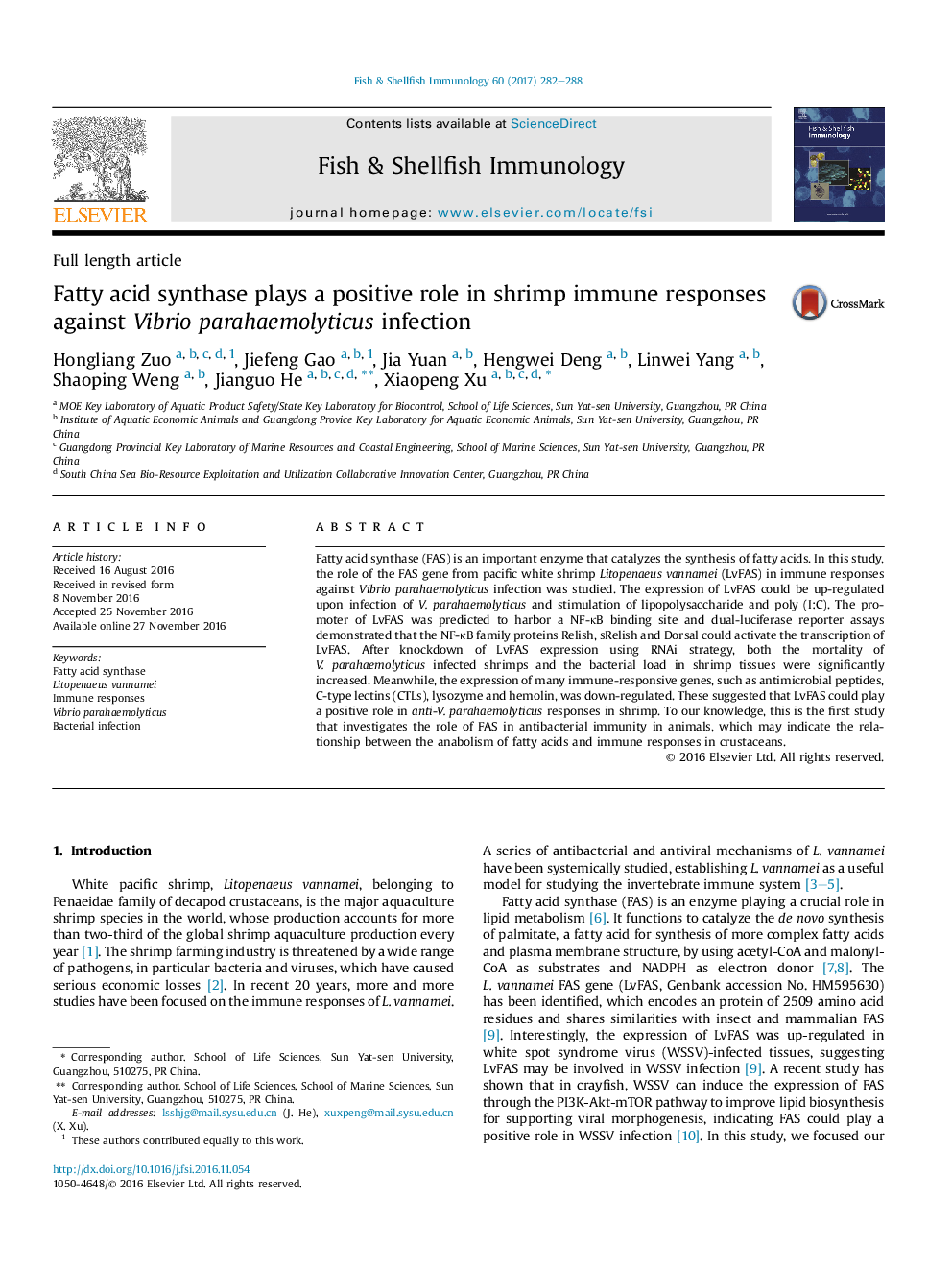| کد مقاله | کد نشریه | سال انتشار | مقاله انگلیسی | نسخه تمام متن |
|---|---|---|---|---|
| 5540985 | 1553614 | 2017 | 7 صفحه PDF | دانلود رایگان |
عنوان انگلیسی مقاله ISI
Fatty acid synthase plays a positive role in shrimp immune responses against Vibrio parahaemolyticus infection
ترجمه فارسی عنوان
سنتاز اسید چرب نقش مثبت در پاسخ ایمنی میگو نسبت به عفونت ویبریو پاراآمولیتیکوس دارد
دانلود مقاله + سفارش ترجمه
دانلود مقاله ISI انگلیسی
رایگان برای ایرانیان
کلمات کلیدی
موضوعات مرتبط
علوم زیستی و بیوفناوری
علوم کشاورزی و بیولوژیک
علوم آبزیان
چکیده انگلیسی
Fatty acid synthase (FAS) is an important enzyme that catalyzes the synthesis of fatty acids. In this study, the role of the FAS gene from pacific white shrimp Litopenaeus vannamei (LvFAS) in immune responses against Vibrio parahaemolyticus infection was studied. The expression of LvFAS could be up-regulated upon infection of V. parahaemolyticus and stimulation of lipopolysaccharide and poly (I:C). The promoter of LvFAS was predicted to harbor a NF-κB binding site and dual-luciferase reporter assays demonstrated that the NF-κB family proteins Relish, sRelish and Dorsal could activate the transcription of LvFAS. After knockdown of LvFAS expression using RNAi strategy, both the mortality of V. parahaemolyticus infected shrimps and the bacterial load in shrimp tissues were significantly increased. Meanwhile, the expression of many immune-responsive genes, such as antimicrobial peptides, C-type lectins (CTLs), lysozyme and hemolin, was down-regulated. These suggested that LvFAS could play a positive role in anti-V. parahaemolyticus responses in shrimp. To our knowledge, this is the first study that investigates the role of FAS in antibacterial immunity in animals, which may indicate the relationship between the anabolism of fatty acids and immune responses in crustaceans.
ناشر
Database: Elsevier - ScienceDirect (ساینس دایرکت)
Journal: Fish & Shellfish Immunology - Volume 60, January 2017, Pages 282-288
Journal: Fish & Shellfish Immunology - Volume 60, January 2017, Pages 282-288
نویسندگان
Hongliang Zuo, Jiefeng Gao, Jia Yuan, Hengwei Deng, Linwei Yang, Shaoping Weng, Jianguo He, Xiaopeng Xu,
